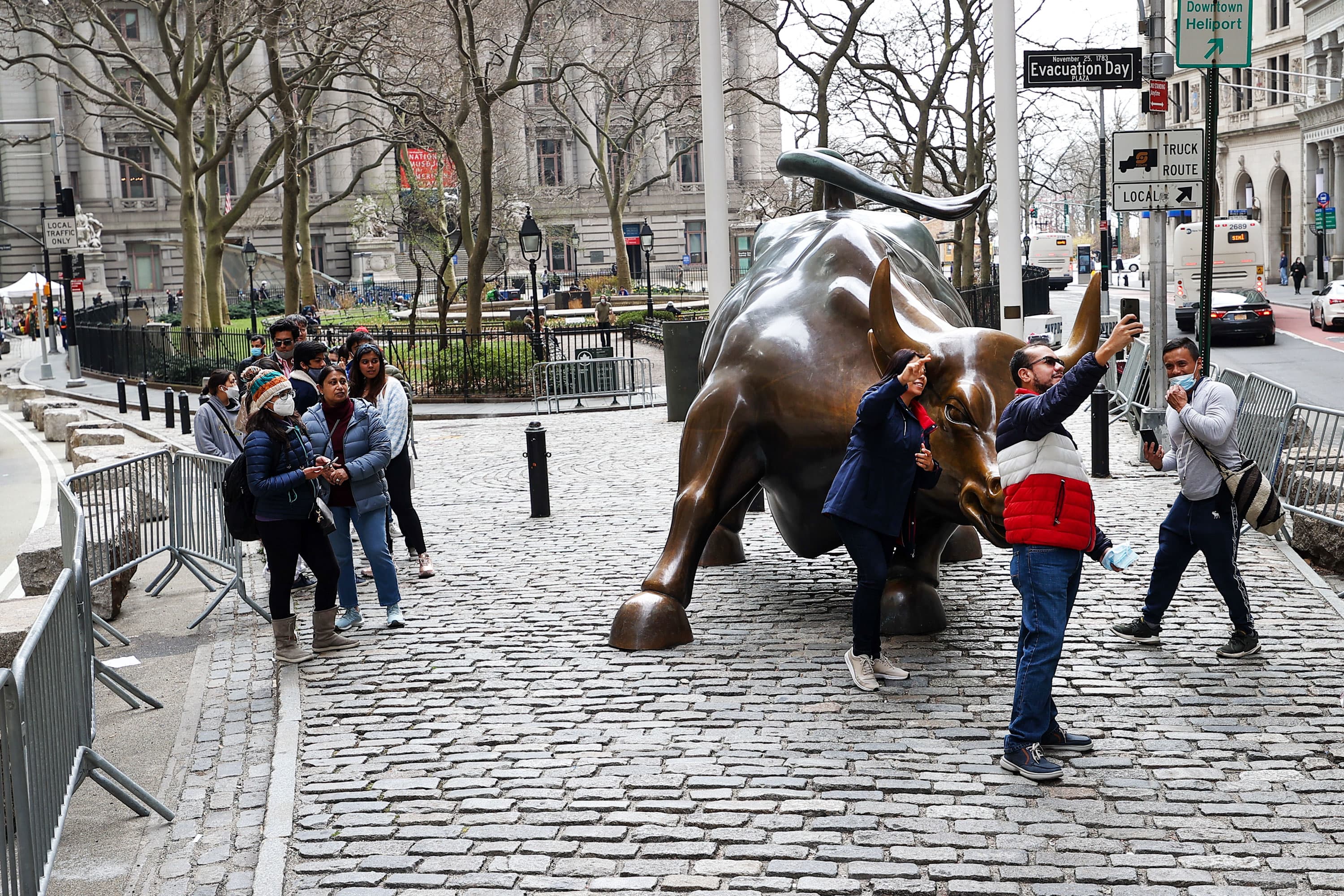
A major Wall Street firm is piling into stocks near record highs.
Wilmington Trust’s Meghan Shue reveals her firm has one of its largest stock market overweights ever.
Shue, who oversees $152 billion in assets, attributes a strong economic backdrop and seasonal tailwinds for the bullish move.
“The near-term disruptions and the near-term concerns over inflation and supply chain disruptions could create some real opportunities,” the firm’s head of investment strategy told CNBC’s “Trading Nation” on Wednesday. “We see this supply chain disruption as delaying not destroying the demand from consumers and businesses alike. And, we think that will be a tailwind particularly as companies restock shelves and rebuild very, very low levels of inventories.”
Shue also expects stocks will benefit from strong capital spending.
“Capex has rebounded to pre-pandemic levels quite quickly. But we still see a lot of demand and interest from companies to spend,” said Shue. “Companies are going to resort to capex to diversify their supply chains as well as to accommodate some of these labor [shortfall] issues.”
According to Shue, the biggest winners should be U.S. small caps, developed international and emerging markets versus U.S. large caps, which appear a little frothy.
On Wednesday, the S&P 500, Dow and tech-heavy Nasdaq closed lower after October consumer prices surged to more than three decade high. The S&P 500 and Dow are less than 2% from record highs. The Nasdaq is 2.7% away.
Shue, a CNBC contributor, views weakness as an opening to buy even more stocks.
“There’s an opportunity to potentially increase our equity exposure,” said Shue, who believes inflation is transitory.
It’s key reason why she cut the firm’s overweight exposure to commodities two weeks ago.
“We’ve been overweight to commodities for the better part of this year, and it’s been a great trade,” she noted. “We felt like the time was right to sell into that strength and trim that exposure a little bit.”
Shue was using commodities as a hedge against inflationary risks.
‘Commodities could really get hurt’
“Commodities do very well when inflation is increasing,” said Shue. “But if we just remain at these elevated levels or even decrease from here, commodities could really get hurt.”
For now, Shue is sitting on profits made from the commodities sale. Her plan is take advantage of market choppiness. She lists persisting supply chain backlogs and Federal Reserve rate hike jitters as chief catalysts that could drive volatility.
“We’re holding slightly elevated levels of what we would refer to as tactical cash,” Shue said. “We do really hope to deploy that in the coming months as we see opportunities.”
Disclaimer


 Signal2forex.com - Best Forex robots and signals
Signal2forex.com - Best Forex robots and signals




